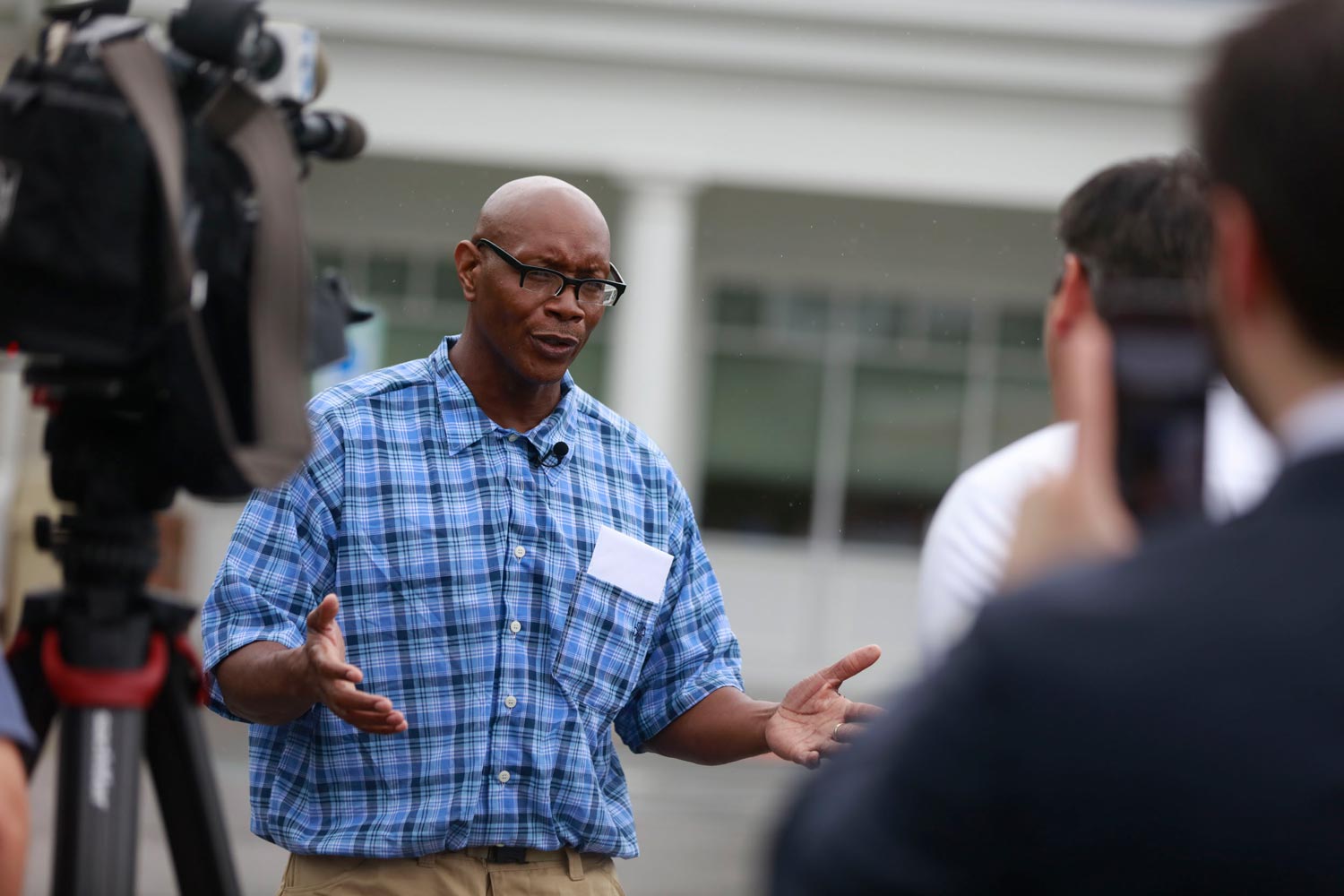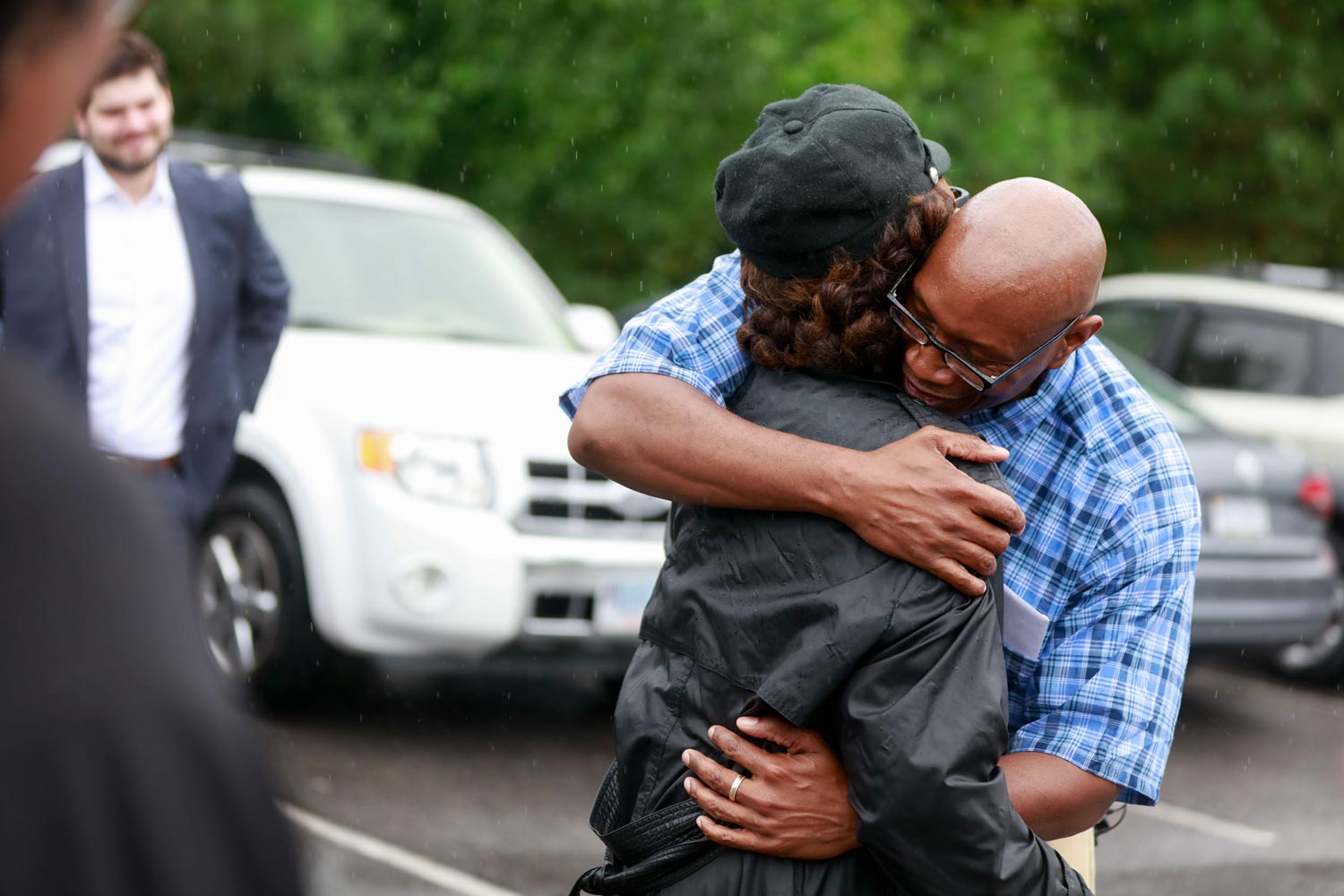In a light rain, Darnell Phillips raised his hands to the heavens on Tuesday. The man who was sentenced to 100 years in prison for the 1990 rape of a child in Virginia Beach was paroled earlier in the day, about three years after new evidence was uncovered in the case by the Innocence Project Clinic at the University of Virginia School of Law.
He was free.
Clinic directors Jennifer Givens and Deirdre Enright, along with UVA Law students, met with their client at around noon at a Virginia Beach probation and parole office following his morning release from the Greensville Correctional Center. They joined Phillips’ mother, sisters and fiancé to welcome him home. Some wore rain jackets, but Phillips didn’t mind feeling the weather. He was all smiles as he gave and received hugs.
The jubilant mood, however, was overshadowed by the fact that Phillips was at the office to register as a sex offender. He has not been officially cleared of the crime at this point.
Phillips’ brow was furrowed as he spoke to press about his ordeal.

Though Phillips was released after serving 28 years, the conviction remains on his record and he must register as a sex offender. A petition for a writ of actual innocence is still pending.
Prior to the decision by the Virginia Parole Board to release him, made six months ago, the clinic uncovered DNA evidence and received a sworn affidavit from the victim, both of which support Phillips’ long-standing claim of innocence.
In 2015, a team from the clinic found the physical evidence that set them down the path to DNA testing. They discovered that a rape kit and garments from the original investigation had been in storage at a Virginia Beach courthouse evidence room, but had never been tested. After two labs failed to come up with anything conclusive from the time-denigrated samples, a third lab in California found evidence during the summer of 2017 that at least two men had touched the garments, and neither man was Phillips.
In her affidavit, the victim said police told her that Phillips had assaulted other children, that his alibi did not check out and that her blood was found on his underwear at his home.
“None of these statements was true,” said Enright, the clinic’s director of investigation.
Givens, the clinic’s legal director, said Phillips was a model prisoner.
“He had been in prison 28 years, and he didn’t have an infraction,” she said. “He’s been an exceptional inmate.”
Phillips completed the required re-entry classes prior to his release.
“He will be in supervised parole unless he receives a pardon or relief in the court,” Givens added.
The clinic filed a petition for writ of actual innocence with the Virginia Supreme Court in 2017.
Dennis Barrett, an attorney with Schaner & Lubitz who was a member of the original Innocence Project Clinic and the first student to work on Phillips’ case, was among the additional well-wishers, which included current Innocence Project Clinic members. Students in the yearlong clinic investigate and litigate wrongful convictions of inmates throughout Virginia.
“Dennis has monitored the progress in Darnell’s case ever since he graduated, and drove from Washington, D.C., to be present for his release,” Enright said.
Media Contact
Article Information
September 26, 2018
/content/client-paroled-crime-uva-law-clinic-says-he-never-committed

